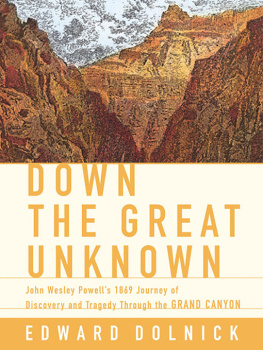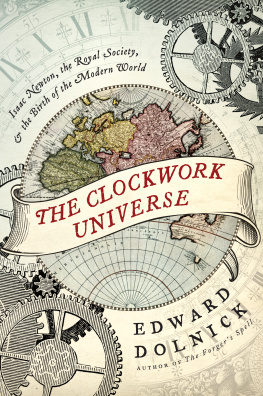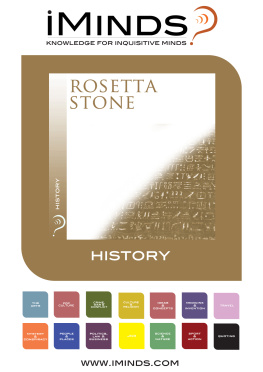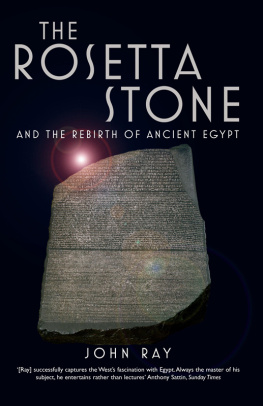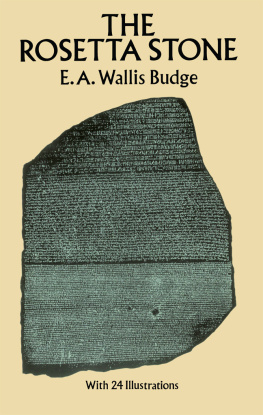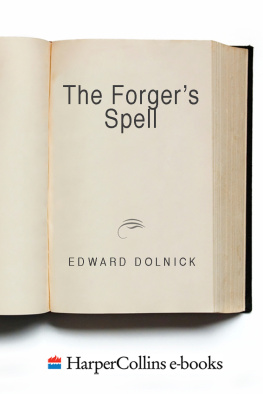Edward Dolnick - The Writing of the Gods: The Race to Decode the Rosetta Stone
Here you can read online Edward Dolnick - The Writing of the Gods: The Race to Decode the Rosetta Stone full text of the book (entire story) in english for free. Download pdf and epub, get meaning, cover and reviews about this ebook. year: 2021, publisher: Scribner, genre: Non-fiction. Description of the work, (preface) as well as reviews are available. Best literature library LitArk.com created for fans of good reading and offers a wide selection of genres:
Romance novel
Science fiction
Adventure
Detective
Science
History
Home and family
Prose
Art
Politics
Computer
Non-fiction
Religion
Business
Children
Humor
Choose a favorite category and find really read worthwhile books. Enjoy immersion in the world of imagination, feel the emotions of the characters or learn something new for yourself, make an fascinating discovery.

- Book:The Writing of the Gods: The Race to Decode the Rosetta Stone
- Author:
- Publisher:Scribner
- Genre:
- Year:2021
- Rating:5 / 5
- Favourites:Add to favourites
- Your mark:
- 100
- 1
- 2
- 3
- 4
- 5
The Writing of the Gods: The Race to Decode the Rosetta Stone: summary, description and annotation
We offer to read an annotation, description, summary or preface (depends on what the author of the book "The Writing of the Gods: The Race to Decode the Rosetta Stone" wrote himself). If you haven't found the necessary information about the book — write in the comments, we will try to find it.
The Writing of the Gods: The Race to Decode the Rosetta Stone — read online for free the complete book (whole text) full work
Below is the text of the book, divided by pages. System saving the place of the last page read, allows you to conveniently read the book "The Writing of the Gods: The Race to Decode the Rosetta Stone" online for free, without having to search again every time where you left off. Put a bookmark, and you can go to the page where you finished reading at any time.
Font size:
Interval:
Bookmark:
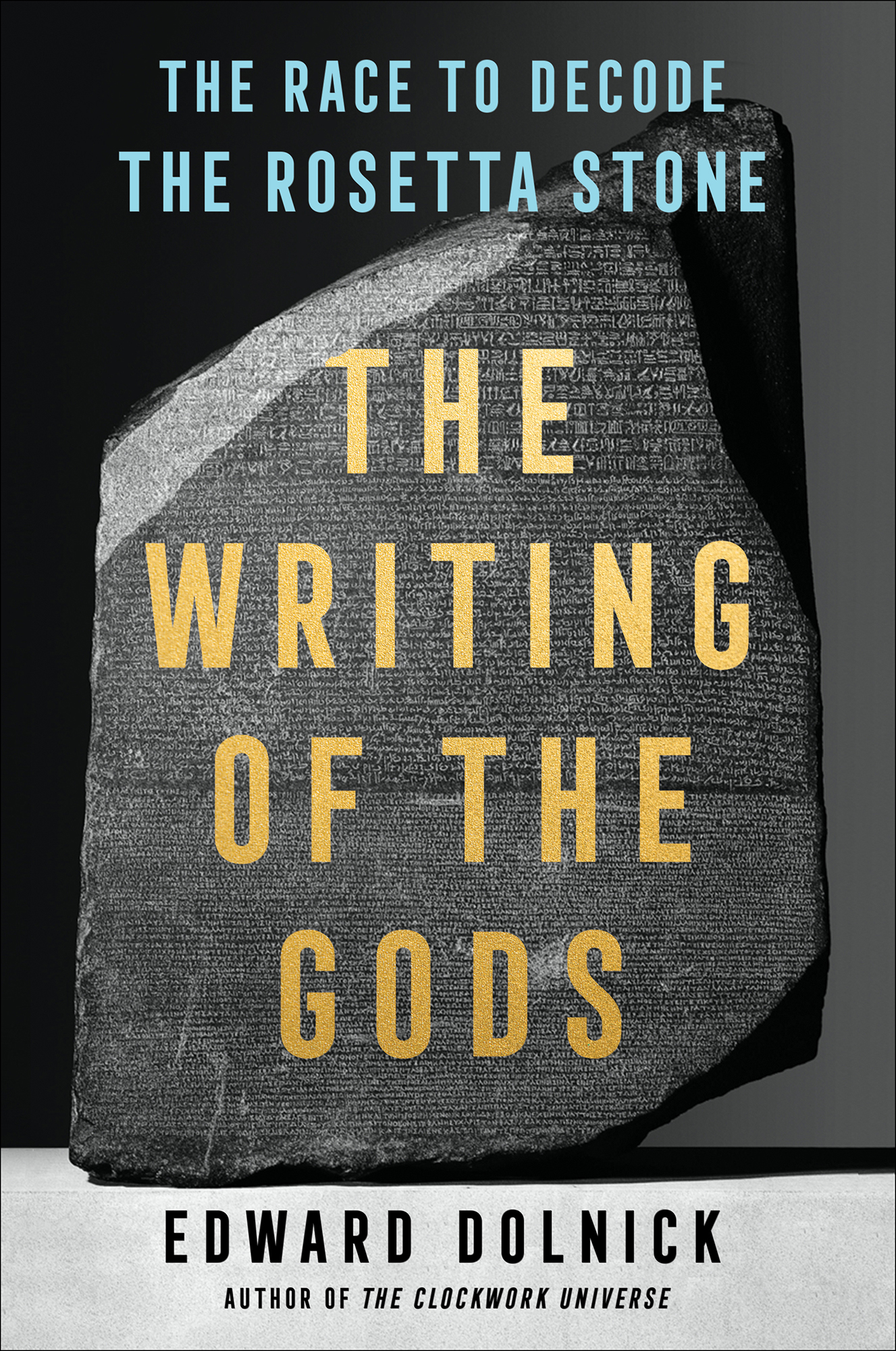
The Race to Decode the Rosetta Stone
The Writing of the Gods
Edward Dolnick
Author of the Clockwork Universe

The Seeds of Life
The Rush
The Clockwork Universe
The Forgers Spell
The Rescue Artist
Down the Great Unknown
Madness on the Couch

Scribner
An Imprint of Simon & Schuster, Inc.
1230 Avenue of the Americas
New York, NY 10020
www.SimonandSchuster.com
Copyright 2021 by Edward Dolnick
All rights reserved, including the right to reproduce this book or portions thereof in any form whatsoever. For information, address Scribner Subsidiary Rights Department, 1230 Avenue of the Americas, New York, NY 10020.
First Scribner hardcover edition October 2021
SCRIBNER and design are registered trademarks of The Gale Group, Inc., used under license by Simon & Schuster, Inc., the publisher of this work.
For information about special discounts for bulk purchases, please contact Simon & Schuster Special Sales at 1-866-506-1949 or .
The Simon & Schuster Speakers Bureau can bring authors to your live event. For more information or to book an event, contact the Simon & Schuster Speakers Bureau at 1-866-248-3049 or visit our website at www.simonspeakers.com.
Jacket design by Steve Attardo
Jacket Photograph The Trustees of the British Museum. All Rights Reserved
Library of Congress Cataloging-in-Publication Data has been applied for.
ISBN 978-1-5011-9893-9
ISBN 978-1-5011-9895-3 (ebook)
For Lynn, and Sam and Ben
Here we are then, in Egypt, the land of the Pharaohs, the land of the Ptolemies, the kingdom of Cleopatra with our heads shaven as clean as your knee, smoking long pipes and drinking our coffee lying on divans. What can I say? How can I write to you about it? I have scarcely recovered from my initial astonishment.
Gustave Flaubert, 1850
- 3100 BC Earliest hieroglyphs
- 2686 BC2181 BC Old Kingdom
- 2600 BC Great Sphinx; Great Pyramid
- 2040 BC1782 BC Middle Kingdom (golden age of Egyptian literature)
- 1570 BC1070 BC New Kingdom (wealthiest era in Egyptian history)
- 1334 BC1325 BC King Tut reigns
- 1279 BC1213 BC Ramesses II reigns (Egypts mightiest pharaoh)
- 332 BC Alexander the Great conquers Egypt
- 196 BC Rosetta Stone inscribed
- 30 BC Rome conquers Egypt; Cleopatra commits suicide
- 394 AD Last hieroglyphs inscribed
- Arabs conquer Egypt
- 1773 Thomas Young born
- 1790 Jean-Franois Champollion born
- 1798 Napoleon invades Egypt
- 1799 Rosetta Stone discovered
(All the ancient dates are historians and archaeologists best guesses)
I magine an archaeologist, thousands of years from now, whose trowel clangs against something solid and hard, hidden in the dirt. In this distant age, no one knows for sure whether there once was a United States or if the name only referred to a legendary place, like Atlantis. No one speaks English. A few scraps of writing in English have survived. No one can read them.
The stone beneath the trowel looks smooth along part of its length, but a glance reveals that it is only a broken fragment of what might once have been a large block. Still, the smoothness is enough to set the pulse racing; nature seldom works so tidily. A closer look holds still more promise. Those lines and curves gouged into the stonecould they be some sort of inscription?
Over weeks and months, teams of researchers painstakingly trace the carved and eroded marks. They will ponder them endlessly, trying to guess a meaning in the mysterious symbols. Some are too damaged or worn to make out, and others are missing altogether.
OUR SC E AN SEV
Some scholars believe the message should be read the other way around:
VES NA E CS RUO
How would the sleuths proceed? Not knowing English, not knowing American history, would they ever manage to see that once a stone temple had proclaimed a message that began, Four score and seven years ago?
I n 1799, the year of the Rosetta Stones discovery, Egypt was a sweltering, impoverished backwater. No matter. It was ancient Egypt that beguiled the West, and it had never lost its allure.
Herodotus, the father of history, was the first outsider to describe Egypts marvels. Writing in 440 BC, he entranced his readers with tales of a land whose every aspect was unfamiliar. Egypt boasted a climate unlike any other and a river which shows a nature different from all other rivers. Most important, the Egyptians themselves were a people whose manners and customs were opposite to other men in almost all matters.
Egypt was different from other countries because it was a slender strip of green surrounded by thousands of miles of desert on both sides. The Nile was different from other rivers because it flowed from south to north, which seemed contrary to nature, and, more important, because it flooded every year, even though Egypt almost never saw rain. When the floods receded, they left behind rich, black soil, perfect for farming.
The ancient world revolved around agriculture, but in all the world except Egypt, farming was a fickle business. In other lands the rains might come and bring prosperity for a season; they might fail, and then crops would wither and families starve.
Egypt, blessed by the gods, had few such worries. Despite skies that were perpetually clear, the flood had nearly always come, and it would always come, this year and next year and forever. Here was that rarest of gifts, a miracle with an eternal guarantee. With enemies walled off by deserts to the east and west, by the sea to the north and by wild rapids to the south, Egypt sat safe and prosperous, the envy of the world.
Above all, Egypt was rich beyond reckoning. Gold is in Egypt like the sands of the desert, a king of neighboring Assyria remarked enviously, in the era of King Tut. It was almost true. Tut was a nobody, the Millard Fillmore of pharaohs, and yet the riches buried with him dazzle museumgoers to this day. He was buried in a coffin inside a coffin inside a coffin, and the innermost of the three was solid gold and weighed 220 pounds. Inside lay Tuts linen-wrapped mummy, his head and shoulders covered by an elegant, gleaming gold mask that rested unseen for three thousand years.
Egypt was the best-known and the longest-lived of all ancient cultures. The time span is almost inconceivable. The pharaohs reigned from roughly 3100 BC until 30 BC, the year of Cleopatras suicide. Americas history extends less than three centuries. Egypts run was thirty centuries.
To try to put markers on an Egyptian timeline is to risk vertigo. The Great Pyramid and the Sphinx, Egypts best-known monuments, are older than Stonehenge. Both date from around 2600 BC (in comparison with perhaps 2400 BC for Stonehenge). By the time they were built, Egypt was already five centuries old.
From the time of the pyramids to the reign of Cleopatra was longer than from Cleopatra to the Wright brothers. And throughout nearly all that vast expanse of time, Egypt perched atop the world.
Font size:
Interval:
Bookmark:
Similar books «The Writing of the Gods: The Race to Decode the Rosetta Stone»
Look at similar books to The Writing of the Gods: The Race to Decode the Rosetta Stone. We have selected literature similar in name and meaning in the hope of providing readers with more options to find new, interesting, not yet read works.
Discussion, reviews of the book The Writing of the Gods: The Race to Decode the Rosetta Stone and just readers' own opinions. Leave your comments, write what you think about the work, its meaning or the main characters. Specify what exactly you liked and what you didn't like, and why you think so.

